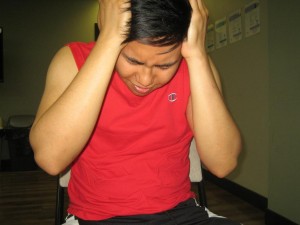Overview of a Concussion
- A concussion is when the brain becomes injured. The brain does not function correctly for a while after a concussion.
- You might have problems with coordination, stability, focus, judgement, and memory.
Causes of a Concussion

A concussion is caused by an unexpected, fierce bump to the brain. It might be caused by:
- A direct force to the head
- Suddenly coming to a stop – most expected in vehicle accidents
Concussions mainly occur with events that entail:
- Sports
- Guns
- Scooters and skateboards
- Vehicles
- Falling
- Bicycles
- Physical aggression such as battering, domestic aggression and child abuse
Risk Factors of a Concussion
Factors that can increase your likelihood of a concussion include:
- An earlier concussion or injury sustained to the head
- Partaking in sports like boxing or rugby
- Being in a vehicle accident
- Alcohol intoxication
Symptoms of a Concussion
Symptoms might include:
- Uncertainty
- Loss of awareness or memory regarding the accident
- Headache or throbbing in the neck
- Vomiting
- Problem recalling things or information
- Trouble paying attention or focusing
- Sleeping more than usual
- Problem sleeping
- Sensitivity to: distractions, lights and sounds
- Fuzzy vision or eyes that wear out easily
- Feeling miserable, nervous, or lethargic
- Becoming easily irritable or annoyed for no reason
Prevention
To avoid vehicle accidents and head injuries connected with car accidents:
- Do not drink alcohol while you are driving.
- Do not take pills that might make you drowsy, particularly when driving or using heavy apparatus.
- Comply with speed limits
To avoid accidents at home that can result in concussions:
- Mount security gates by stairs and protection guards by windows.
- Put non-slip mats to prevent yourself from falling in the bathroom.
